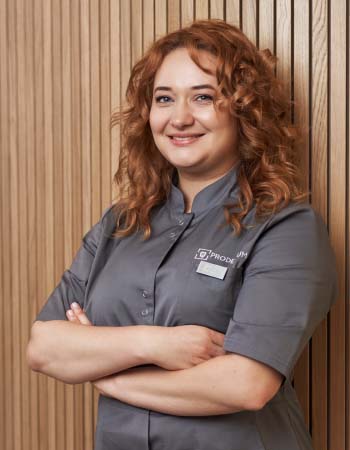
Oral surgery
If a tooth is severely damaged and there are no reasonable ways to restore it, such tooth must be extracted. A minimally injuring (atraumatic) tooth extraction allows for a smoother implant placement in the future.
If a tooth is severely damaged and there are no reasonable ways to restore it, such tooth must be extracted. A minimally injuring (atraumatic) tooth extraction allows for a smoother implant placement in the future. If the procedure is planned before tooth extraction, dental implant may be inserted immediately after tooth extraction. However, if the situation is unfavorable, implant placement may be delayed and alveolar augmentation may be performed after tooth extraction by inserting bone substitute, platelet-rich fibrin (PRF) or even tissues produced from the extracted tooth (called dentin grind).
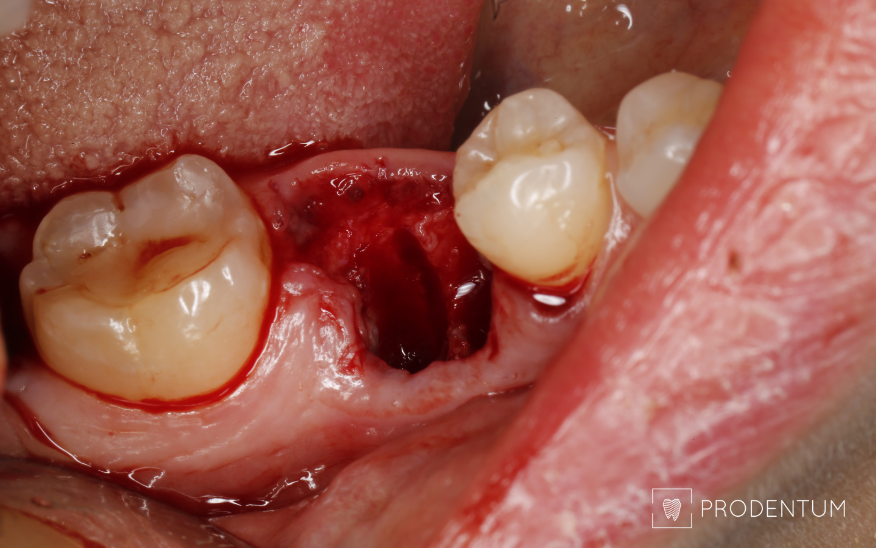
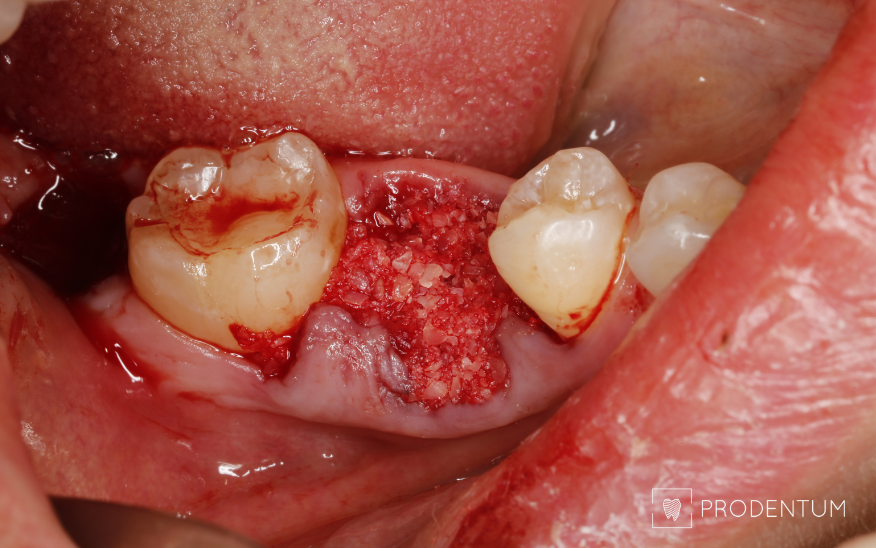
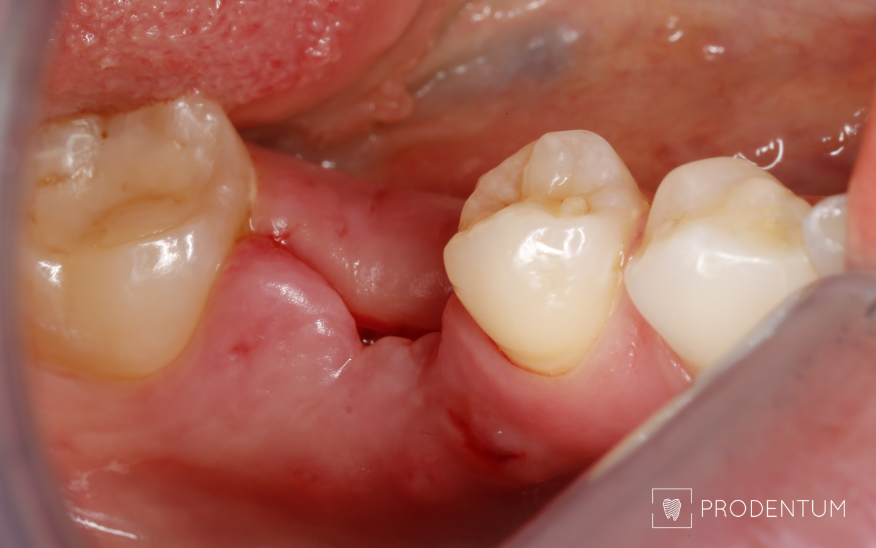
Tooth extraction is also performed for improperly erupted wisdom teeth.
Impacted teeth are teeth that are not erupted, partially erupted or stuck. Wisdom teeth are impacted most often. The most common reasons for wisdom tooth extraction:
- Before orthodontic treatment
- Recurring inflammation in the wisdom tooth region
- Unfavorable prognosis: large cavity, non-restorable tooth, difficult root canal treatment
- No opposing tooth, difficult to clean, rotated, improper position
- Damage to adjacent tooth, when the wisdom tooth complicates treatment
- Cyst formation
- Mucosal trauma
- Improper wisdom tooth position restricts jaw movements and is thought to be a risk factor for temporomandibular disorders (TMD)
During consultation the oral surgeon will evaluate the position of your wisdom teeth or other impacted tooth, whether it is necessary to extract them, extraction technique (non-complicated, complicated/surgical extraction), anesthesia (local, intravenous, general), preparations needed for the procedure, will explain possible risks and complications.
Preparation for tooth extraction:
Before tooth extraction, a panoramic X-ray will be done to evaluate the tooth and surrounding anatomical structures. The clinician may decide to perform a computed tomography test or a dental X-ray before or during the procedure.
No preparation is necessary for non-complicated tooth extraction. Have a meal before the procedure, since it is not recommended to eat 2 to 3 hours after tooth extraction.
If a complicated/surgical extraction under intravenous sedation is performed, the following tests are recommended: Full blood test, blood glucose test, blood clotting tests (APTT, PT, INR), urine test and electrocardiogram (ECG).
Postoperative care:
- It is normal to expect swelling, reddening, tenderness of the surgical site. Usually the swelling increases 2 to 4 days after the procedure.
- There may also be pain upon touching the area. It usually starts to decrease after 3 to 4 days.
- Bruising visible on the face. Usually most visible 2 to 4 days post procedure. Does not require any additional treatment. During resorption, the color of the bruise changes (from reddish blue to greenish yellow). The adjacent areas may also develop bruising. The size of the bruising depends on the scope and type of surgery and the body reaction to the procedure.
Aside from tooth extraction, other oral surgery procedures are performed in the ProDentum clinic:
- Tooth, tooth root and tooth germ surgical extraction.
- Canine tooth uncovering (for planned orthodontic treatment).
- Osteotomy (to facilitate orthodontic treatment).
- Orthodontic implant placement.
- Autotransplantation.
- Apicectomy.
- TMJ repositioning.
- Removal of lipomas, ateromas of the face, histological or cytological testing.
- Lip or tongue frenulum correction.
- Complex bone augmentation procedures (bone blocks, etc.).
- Removal of bone spurs (exostoses), vestibuloplasty.
- Cyst removal in the jaw area; marsupialization; decompression.
- Removal of odontomas, osteomas.
- Botulinum toxin / hyaluronic acid injections.
In difficult cases tooth extractions may bee performed under general anesthesia. If necessary, patients may be provided with sick leave. All surgical procedures and consultations are done by the clinic’s oral surgeons.

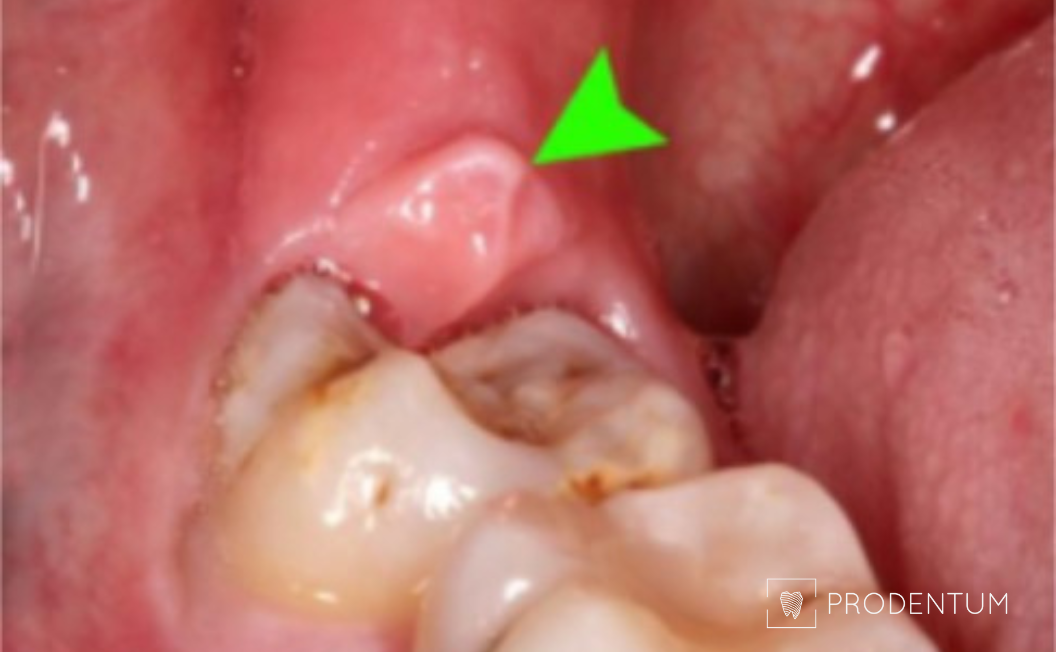
Illustration of improperly erupted wisdom tooth (due to excess of gums above the tooth, inflammation occurs, it is difficult to clean, therefore such teeth are often extracted)


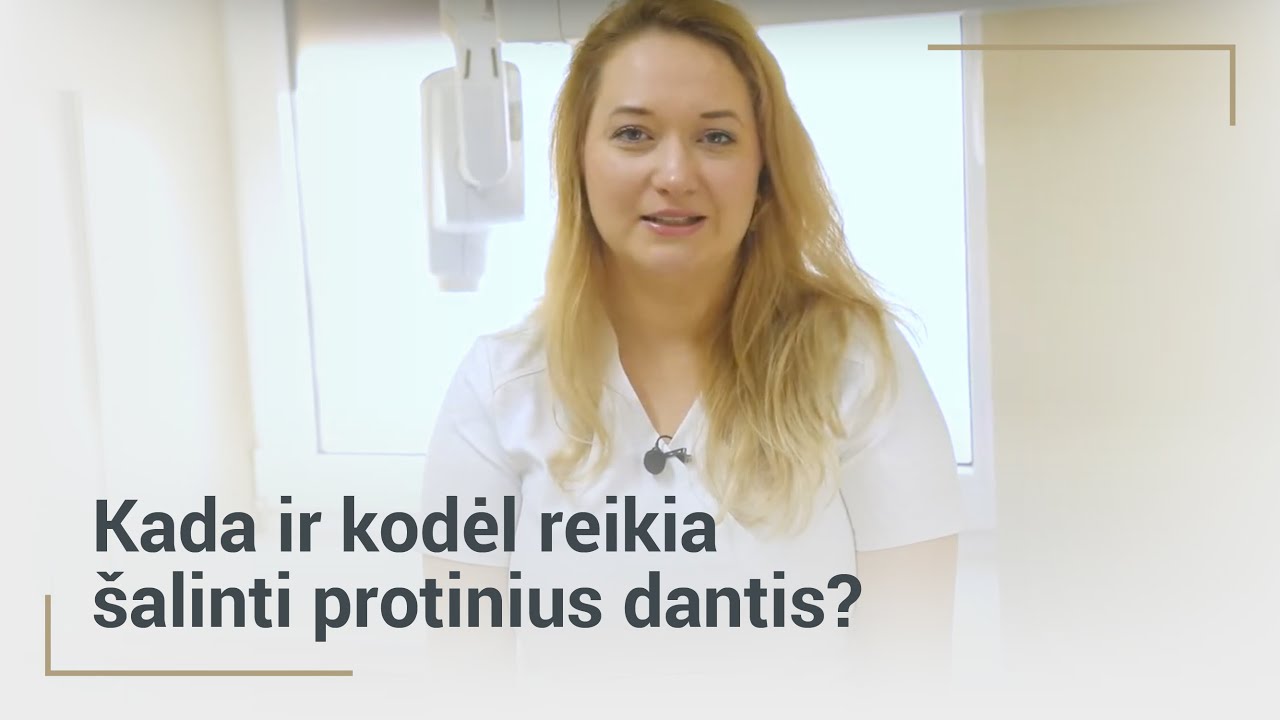

Oral surgery, tooth extraction price list
The cost is determined during consultation and may be adjusted during treatment.
Oral surgery, tooth extraction
Name
of service
Price
Price
Prof. med.dr. V. Rutkūnas
Incision, drainage
70,00€
€
Treatment of pericoronaritis, alveolitis (dry socket)
70,00€
€
Implant removal
270,00€
€
Extraction of permanent tooth
99,00€
€
Complex removal of a permanent tooth
145,00€
€
Surgical extraction of permanent tooth
200,00-250,00€
€
Extraction of periodontally compromised tooth
65,00€
€
Cyst removal
190,00€
€
Growth removal
190,00€
€
Bollard orthodontic appliance placement (with implant cost)
400,00€
€
Infrazygomatic implant placement (with implant cost)
220,00€
€
Orthodontic implant placement (with implant cost)
150,00€
€
A-PRF
35,00€
€
Usage of blood plasma for better healing (PRF)
130,00€
€
Other recommended treatments
The ProDentum clinic has a wide range of services and provides patients with the highest level of professionalism.


